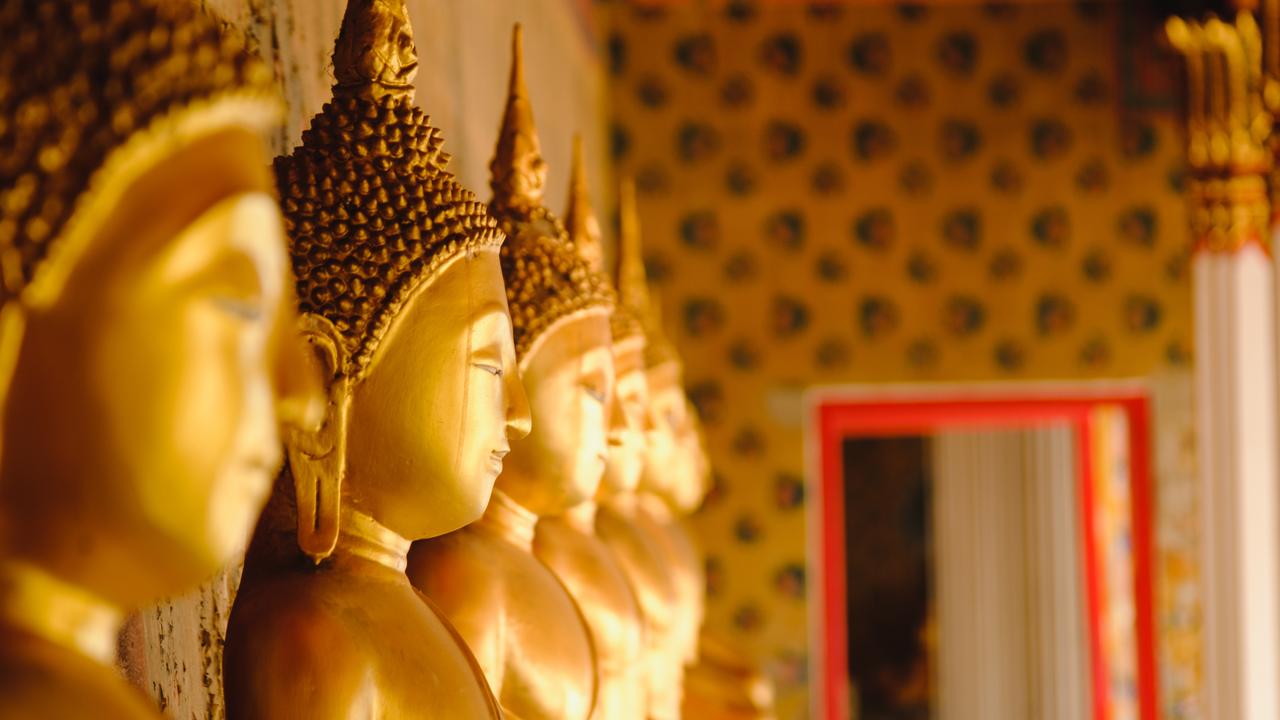A Buddhist temple in central Thailand has been left without monks after all its holy men failed drug tests and were defrocked, a local official said Tuesday.
Four monks including an abbot at a temple in Phetchabun province’s Bung Sam Phan district tested positive for methamphetamine on Monday, district official Boonlert Thintapthai told AFP.
The monks have been sent to a health clinic to undergo drug rehabilitation, the official said.
“The temple is now empty of monks and nearby villagers are concerned they cannot do any merit-making,” he said.
Merit-making involves worshippers donating food to monks as a good deed.
Boonlert said more monks will be sent to the temple to allow villagers to practise their religious obligations.
Thailand is a major transit country for methamphetamine from Myanmar’s troubled Shan State via Laos, according to the United Nations Office on Drugs and Crime (UNODC).
The Golden Triangle – the area where the borders of Thailand, Laos and Myanmar meet – and specifically Shan State, is believed to the largest producer of meth in the world.
A recent flood of methamphetamine pills, known locally as Yaba, has seen the price per tablet drop as low as 10-20 baht (40-80 cents), down from around 200 baht ($8.50) in 2007.
“The drop in the Yaba price from traditional highs started three or four years ago as meth started flooding out of Shan State and the Golden Triangle, but it then dropped further and very fast in the past 18 months as armed groups including some of the smaller groups really increased tablet production,” UNODC regional representative Jeremy Douglas told the Thai Inquirer in August.
“Meth and particularly Yaba can be easily found in every corner of the country [Thailand] – supply is up everywhere, and at this point a tablet is cheaper than a beer.”
The growing prevalence of Yaba and ice has been making headlines in the country, with massive drug hauls reported every few weeks by police.
Mr Douglas said it was “almost impossible to say how much is produced and trafficked, but Thailand last year seized more than 600 million Yaba tablets and if it represents 10 per cent [of supply] it puts the amount trafficking at, give or take six billion and if it is 20 per cent then [the trafficking amount would be] three billion”.
“But frankly nobody knows except to say billions [of pills] are moving, and the supply is at unprecedented and at ridiculous levels,” he said.
Shan State, in Myanmar’s northeast, is home to several ethnic armed groups but has been comparatively stable since the February 2021 military coup.
“Northern Shan State has witnessed some of Myanmar’s heaviest fighting over the past decade, but in contrast to most of the country, the region has been stable since the coup,” International Crisis Group said in a January 2022 report.
“The country’s largest ethnic armed group, the powerful United Wa State Army, as well as its close neighbour, the National Democratic Alliance Army (also known as the Mongla Group), have remained largely aloof, as they enjoy full autonomy, are geographically distant from the political crisis and disengaged from Myanmar politics.
“Although they have not formally taken sides, their non-participation assists the Tatmadaw [Myanmar armed forces] by enabling it to concentrate troops in other areas.”
Authorities across Southeast Asia have made record meth seizures in recent years.
Last month, Hong Kong officials uncovered a 1.8 tonne shipment of liquid methamphetamine hidden in cartons of coconut water bound for Australia.
The drugs – worth more than $1.6 billion – were identified by intelligence developed by Australian Federal Police officers in Mexico and the Australian Department of Home Affairs.
AFP and Border Force made the seizure with the help of Hong Kong Customs and Excise, which found the drugs on October 23.
“The harsh reality is that Australia’s problem of illicit drug use is bankrolling a raft of dangerous and brutal cartels, triads and outlaw gangs,” AFP Detective Superintendent Patrick Gordon said.
“These criminals undermine our national security and our economy. They make our suburbs and roads less safe.”

